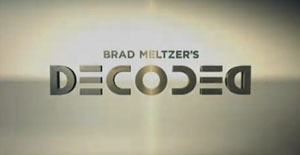
Rosa Brooks, a former Pentagon official who is now a
Georgetown law professor (and a fellow FP
writer), said the lines of warfare and much else are much murkier than they
were a few decades ago.
"Is a line of code a weapon?" she asked at the CNAS conference. "Well, it can kill
people. It can do real damage." (Tom: Glock vs. GLOC.)
She said it is crucial to be conscious of the legal
framework you impose on a situation, because that can drive decisions. If you
think a terrorist act is a criminal act, you will respond to it one way. If you
decide it was an act of war, you will act in another way. Being unclear about
this can lead to a haziness in strategy. "Because we can lawfully do almost
anything, we do almost everything." And a danger is that the next step is that
other nations will imitate that approach.
She also made the point that drones might be better (and
more ethical) about killing people than people are. "We have robocars, and it
turns out they not only can drive a car as well as a human, they can do it
better, because we have limited attention spans." What, she asked, if drones
are less prone to make mistakes?
Published on June 12, 2013 11:55
